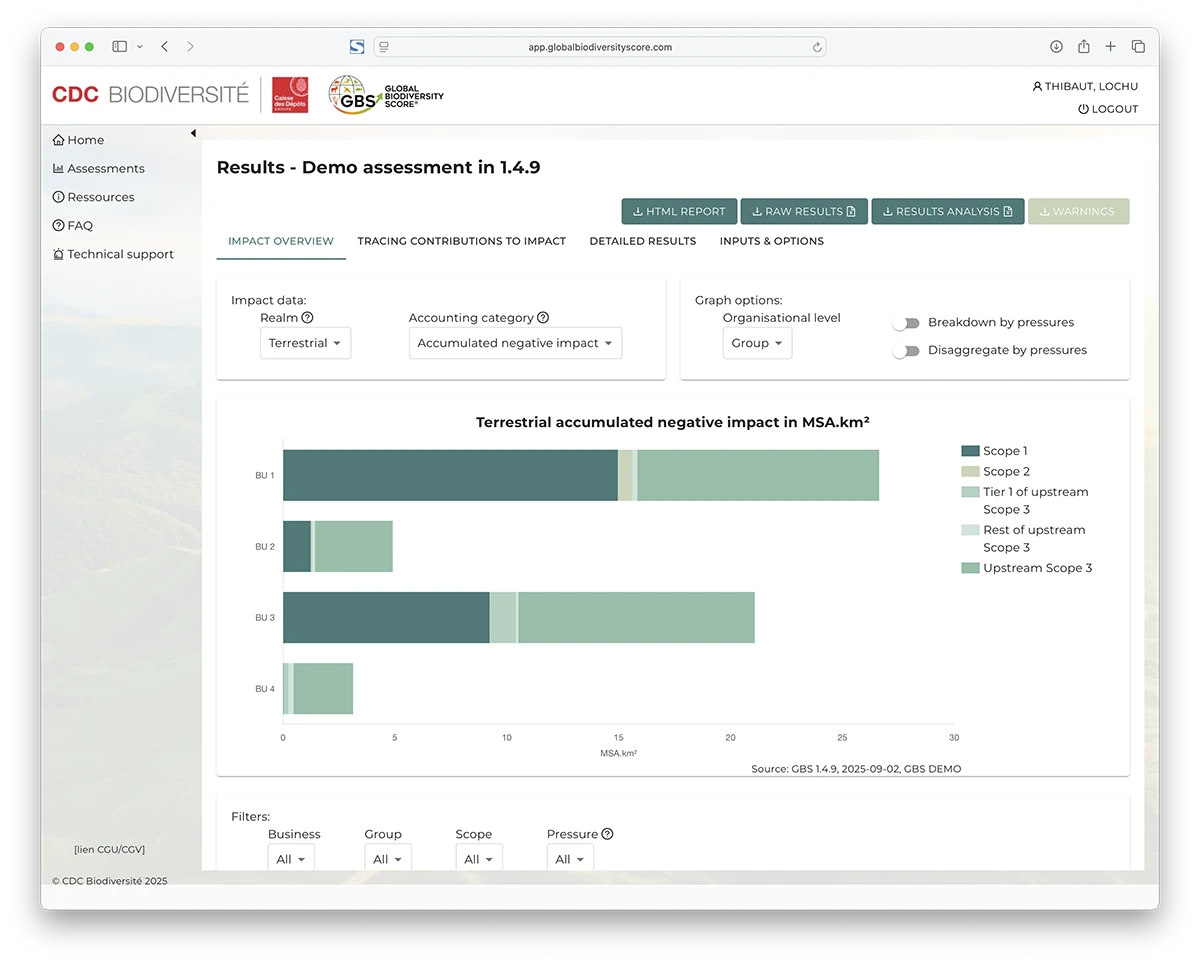GBS open provides academics with a transparent, peer-reviewed, and scientifically robust framework for exploring biodiversity footprints and ecosystem dependencies. Designed for non-commercial research, the tool is grounded in models like GLOBIO, EXIOBASE, and enables analysis of ecosystem integrity using the Mean Species Abundance (MSA) metric.
Key strengths for academic users:

